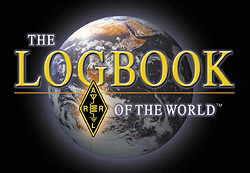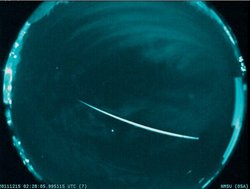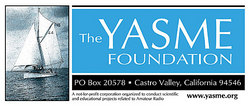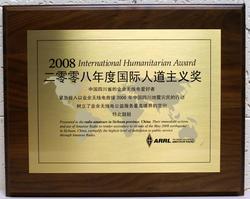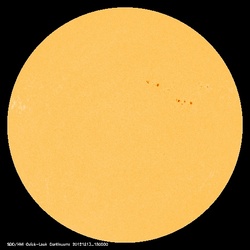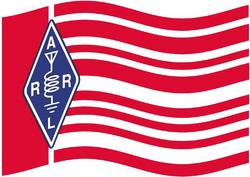 December 13, 2012 John E. Ross, KD8IDJ, Editor
| ||||||||||
+ Available on ARRL Audio News. This is the last ARRL Letter and ARRL Audio News for 2012. Both the ARRL Letter and ARRL Audio News will resume Thursday, January 10, 2013. Thanks for reading The ARRL Letter each week -- we'll see you next year! + FCC News: ARRL Files Petition for Rulemaking with FCC to Create New MF Band at 472-479 kHz
At the 2012 World Radiocommunication Conference (WRC-12), delegates approved a means of satisfying Agenda Item 1.23: a 7-kilohertz-wide secondary allocation between 472-479 kHz for the Amateur Radio Service, with a power limit of 5 W EIRP (or 1 W EIRP, depending on location). Before this portion of spectrum is made available to radio amateurs in the US, the FCC must first approve its use and amend its rules to reflect the change. As such, the ARRL filed a Petition for Rulemaking on November 29, asking the FCC to amend Parts 2 and 97 of its rules and create a domestic Amateur Radio allocation at 472-479 kHz, conforming to the allocation status and limitations set forth in the international Radio Regulations. Read more here. + FCC News: FCC Reduces New Jersey Ham's Forfeiture from $20,000 to $16,000 After unsuccessfully appealing to the FCC to cancel his $20,000 forfeiture, Joaquim Barbosa, N2KBJ, of Elizabeth, New Jersey must pay $16,000 for "willfully and repeatedly violating Section 301 of the Communications Act of 1934, as amended by operating a radio transmitting equipment on the frequency 296.550 MHz without Commission authorization."
The FCC noted in the Forfeiture Order that based on the examination process involved in pursuing an amateur license, "amateur licensees are expected to have an understanding of radio operations and pertinent FCC regulations, including Part 97 of the FCC's rules governing the Amateur Radio Service. Licensed amateur operators know that they are authorized to operate only on the frequencies listed in Section 97.301 of the rules, as designated by their operator class and license. Pursuant to the Table of Allocations, the 267-322 MHz band -- the band that Barbosa was operating in -- is allocated solely for federal government use, which we continue to believe Barbosa knew (or should have known) was not authorized for non-government use." Read more here. + International: IARU Welcomes Two New Member Societies
Earlier this year, the International Amateur Radio Union (IARU) notified its Member Societies that two new national Amateur Radio organizations wished to join the IARU and would need to be voted in: the Federation of Radio Sport of Azerbaijan (FRSA) and the St Vincent and Grenadines Amateur Radio Club (SVGARC). Ballots from all the Member Societies that responded were counted on November 1 and adopted. Based in Baku, Azerbaijan, the FRSA was formally organized on December 30, 2001. There are 50 licensed members of the FRSA out of a total amateur population of approximately 50 in Azerbaijan. The SVGARC is based in St Vincent, St Vincent and the Grenadines and was formally organized in 1951. There are 21 licensed members of the SVGARC, out of a total amateur population of approximately 134 in the country. Both organizations have confirmed to the IARU that they have the ability to meet financial obligations as members of the IARU, are legally able to act in the furtherance of IARU objectives within their respective countries and will adhere to the Constitutions of both the IARU and its respective Regional Organization. Read more here. + Logbook of The World Web Page Now Features Daily and Hourly Status Updates
The ARRL has created a new informational page to issue daily status updates and information of interest to the Logbook of The World (LoTW) user community. These updates will include planned downtime and changes that will impact LoTW operations. In addition, LoTW's processing queue is now updated hourly, telling how many logs and QSOs have been uploaded to the LoTW system and are awaiting processing. New hardware that will improve LoTW's throughput is on order and is expected to be running in six to eight weeks. Rick Murphy, K1MU, and Dave Bernstein, AA6YQ, have been charged with rebooting the Trusted QSL open source project. If you have demonstrably strong C++ development skills that you're interested in applying toward improving LoTW's usability and efficiency, please contact Bernstein via e-mail aa6yq(at)ambersoft(dot)com. We appreciate the user community's patience while we work to bring LoTW's performance to an acceptable level. + Catch the Geminids and Chat with NASA's Meteor Experts
The annual Geminids meteor shower, scheduled to reach its peak on December 13 and 14, is slated to be the most intense shower of the entire year. This is also prime time for amateurs who enjoy bouncing their VHF signals off the ionized trails of these space rocks as they streak into our atmosphere. Known as meteor scatter, this communication technique takes advantage of temporary radio pathways that can span nearly 2000 miles. The week of December 10-16 is a good window for Geminid watching, but the night of Thursday, December 13 is the anticipated peak of the shower. On Thursday, December 13 from 11 PM-3 AM EST (0400-0800 UTC December 14), meteor experts from NASA's Marshall Space Flight Center will be available to answer questions via a late night web chat. NASA will also provide a live Ustream feed of the Geminid shower via a camera mounted at NASA's Marshall Space Flight Center in Huntsville, Alabama. Before the camera activates, viewers will see either pre-recorded footage or a blank box. The camera is light activated and will turn on at dusk. Read more here. The Yasme Foundation Announces 2012 Yasme Excellence Award Recipients and Supporting Grants
The Yasme Excellence Awards are given to individuals who through their own service, creativity, effort and dedication, have made a significant contribution to Amateur Radio. Their contribution may be in recognition of technical, operating or organizational achievement. The Yasme Excellence Award is in the form of a cash grant and an engraved crystal globe. The Yasme Foundation has recognized the following individuals "in order to inspire them and others on behalf of Amateur Radio now and in the future."
The Board of Directors also announces supporting grants to the following projects: WRTC 2014, the World Wide Radio Operators Foundation (WWROF), Club Log, the NCDXF Beacon Project, Yasme scholarships (administered by the ARRL) and the Amateur Radio Association of Kosovo (SHARK). The Yasme Foundation is a not-for-profit corporation organized to conduct scientific and educational projects related to Amateur Radio, including DXing and the introduction and promotion of Amateur Radio in developing countries. ARRL Invites Nominations for 2012 International Humanitarian Award
Nominations for the 2012 ARRL International Humanitarian Award close December 31, 2012. This award is conferred upon an amateur or amateurs who demonstrate devotion to human welfare, peace and international understanding through Amateur Radio. The League established the annual prize to recognize those radio amateurs who have used ham radio to provide extraordinary service to others in times of crisis or disaster. As one of the few telecommunication services that allow people throughout the world from all walks of life to meet and talk with each other, Amateur Radio spreads goodwill across political boundaries. The ARRL International Humanitarian Award recognizes the Amateur Radio Service's unique role in international communication and the assistance amateurs regularly provide to people in need. Read more here. Solar Update
Tad Cook, K7RA, reports: The average daily sunspot numbers fell 13.5 points this week, from 61.1 to 47.6, while the average daily solar flux was about the same this week as last, rising 1.1 points to 102.7. The geomagnetic indices were even quieter this week than last week. The predicted solar flux is 110 on December 13, 115 on December 14, 120 on December 15-17, 115 on December 18, 110 on December 19-20, 115 on December 21-23, 110 on December 24-27, 100 on December 28-29, 95 on December 30-January 3, 100 on January 4-5, and rising to 105 on January 6-8. The predicted planetary A index is 8 on December 13, 5 on December 14-15, 10 on December 16-17, 5 on December 18-28, 8 on December 29, 5 on December 30-January 5, 7 on January 6-7, 5 on January 8-9, and rising again to 8 on January 10-11. Look for more on the ARRL website -- including reports from last weekend's ARRL 10 Meter Contest, updated forecasts and a some minor revisions from both NASA and NOAA to the latest predictions for the peak of Solar Cycle 24 -- on Friday, December 14. For more information concerning radio propagation, visit the ARRL Technical Information Service Propagation page. + ARRL Headquarters to Close for Christmas, New Year's Holidays
ARRL Headquarters will be closed Monday, December 24 and Tuesday, December 25, 2012 in observance of Christmas, and Tuesday, January 1, 2013 in observance of New Year's Day. There will be no W1AW bulletins or code practice transmissions those days. There will be no ARRL Letter or ARRL Audio News on Thursday, December 20 and 27, 2012 and January 3, 2013; both the Letter and Audio News will return on January 10, 2013. We wish everyone a safe and joyful holiday season and a prosperous 2013. This Week in Radiosport This week:
Through January 11, 2013:
All dates, unless otherwise stated, are UTC. See the ARRL Contest Branch page, the ARRL Contest Update and the WA7BNM Contest Calendar for more information. Looking for a Special Event station? Be sure to check out the ARRL Special Event Stations web page. Upcoming ARRL Section, State and Division Conventions and Events
To find a convention or hamfest near you, click here. ARRL -- Your One-Stop Resource for Amateur Radio News and Information Join or Renew Today! ARRL membership includes QST, Amateur Radio's most popular and informative journal, delivered to your mailbox each month. Subscribe to NCJ - the National Contest Journal. Published bi-monthly, features articles by top contesters, letters, hints, statistics, scores, NA Sprint and QSO Parties. Subscribe to QEX -- A Forum for Communications Experimenters. Published bi-monthly, features technical articles, construction projects, columns and other items of interest to radio amateurs and communications professionals. Free of charge to ARRL members: Subscribe to the ARES E-Letter (monthly public service and emergency communications news), the ARRL Contest Update (bi-weekly contest newsletter), Division and Section news alerts -- and much more! Find us on Facebook. Follow us on Twitter. ARRL offers a wide array of products to enhance your enjoyment of Amateur Radio. Donate to the fund of your choice -- support programs not funded by member dues! Click here to advertise in this newsletter (subject to space availability). | ||||||||||

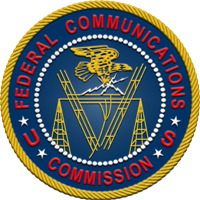
.jpg)
